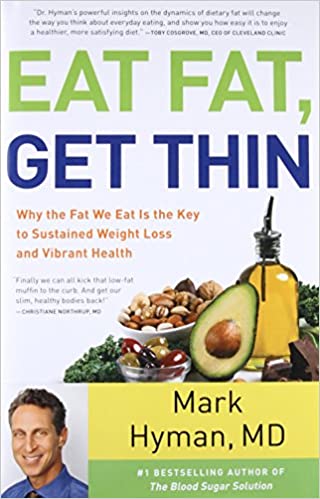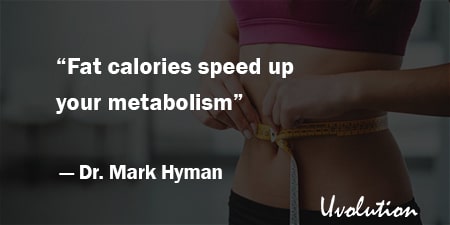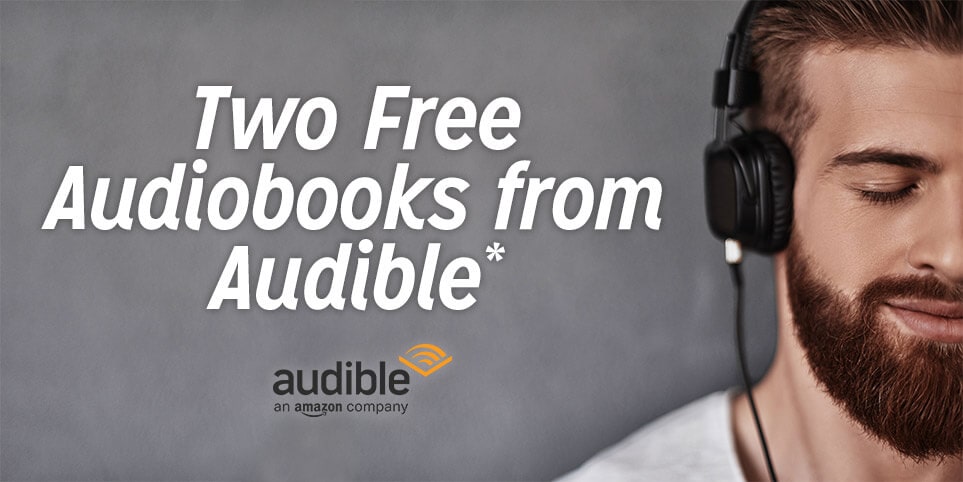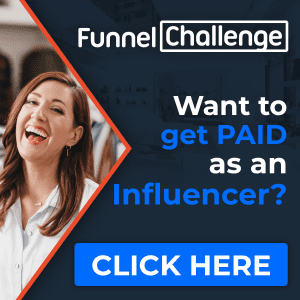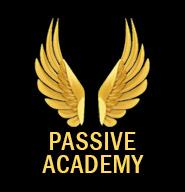Eat Fat, Get Thin by Dr. Mark Hyman Book Summary
The Book in 1 Sentences
Eat Fat, Get Thin: Why the Fat We Eat Is the Key to Sustained Weight Loss and Vibrant Health
“What is the single best thing you can do for your health, weight, and longevity?
Eat more fat!
That’s right. Eat more fat to lose weight; feel good; prevent heart disease, diabetes, dementia, and cancer; and live longer.
How could that be true? Haven’t we been told by every health and nutritional professional, leading medical associations, and our government to eat less fat because fat makes us fat and causes heart disease? We have faithfully followed this advice in America over the last 50 years and yet are fatter and sicker than ever.
It is true that the fat on our bodies is making us sick and causing us to die too soon. But the seemingly logical leap that the fat we eat creates the fat on our bodies and clogs our arteries is wrong. ... The whole idea, which we have bought wholesale, is scientifically untrue. In fact, the science shows the exact opposite.
When you look closely at the data, it supports the idea that if you eat fat, you get thin (and reverse heart disease and type 2 diabetes, while preventing dementia, cancer, and other disease processes). The reality is that the more fat you eat, the more fat you lose and the better your body functions.” ~ Dr. Mark Hyman
6 BIG Ideas
2. The surprising truth about fat and heart disease
3. Which fats are good for us and which are bad?
Eat Fat, Get Thin Book Summary
1. A calorie is not a calorie
“The conventional wisdom doesn’t stack up against the emerging research that shows us that a calorie is not a calorie (when you eat it). In a vacuum or a lab, calories from all foods release the same amount of energy when burned—whether the food is coconut oil or honey.
But when you eat, foods have to go through your body, and they can have profoundly different effects on your hormones, brain chemistry, and metabolism. Fat calories burn differently than sugar calories do. Fat calories speed up your metabolism.
Fats have to be burned and are not easily stored because they don’t spike insulin—the fat storage hormone. Fat works on the brain to cut your appetite so you eat less overall during the day.
On the other hand, sugar and carb calories do exactly the opposite: They spike insulin, promote fat storage, and are quickly laid down as dangerous belly and organ fat. They slow your metabolism and increase hunger and cravings. Mounds of scientific research support this perspective.
This hormonal or metabolic hypothesis of weight gain supports the idea that it is the composition and quality of the foods you eat (and the hormones and biochemistry they subsequently trigger) that determine whether you lose or gain weight. In other words, it is not how much you eat but what you eat that controls the metabolic switches.”
“Think about this rationally when applied to human biology: If you eat the same amount of calories in kale or gummy bears, do they do the same thing to your body?”
“Foods with similar nutrients can affect hormones and metabolism is profoundly different ways, determining whether we store or burn calories, build fat or muscle, feel hungry or satisfied, struggle with weight or maintain a healthy weight effortlessly, and suffer from or avoid chronic inflammation.”
“We know from the research that sugars and refined carbs are the true causes of obesity and heart disease—not fats, as we’ve been told.”
2. The surprising truth about fat and heart disease
“The current scientific consensus is that total fat in your diet does not affect your risk of heart disease or being overweight, and yet many doctors and dieticians still hold on to this outdated idea.
It is still embedded in our popular culture, too, with thousands of low-fat foods still on grocery store shelves and menus. I recently had a patient who struggled with weight for 30 years. She was a low-fat fanatic. Her diet consisted of low-fat, high sugar salad dressings, low-fat yogurt, and bread (naturally low-fat).
She steamed her veggies and didn’t add olive oil, and ate lots of fruit. She avoided nuts, seeds, avocados, and all other fatty foods, all with no results. I recommended healthy fats like avocados and coconut oil, and despite her fat phobia she followed my plan.
In just four days, she lost six pounds and her energy skyrocketed, her brain fog disappeared, her joints didn’t hurt, and her postnasal drip stopped. She continued to lose weight on the program without starvation or fat or calorie deprivation.”
“Doubling or even tripling saturated fat in your diet has no impact on saturated fats in your blood. It’s the carbs that spike your blood levels of saturated fats.
Many studies confirm that blood levels of saturated fat are significantly correlated with the development of type 2 diabetes and heart disease. But these fats in the blood are not coming from the fat you eat. They are produced by the liver in response to the carbs in your diet.”
“The connection between high-fat and saturated-fat diets and heart disease was not because of the fat, but because people who followed high-fat diets ate fewer vegetables, less fiber, more sugar, and more refined and processed foods.”
“Whole, real, low-glycemic (low in sugar and refined carbs), high-fat (good fat), phytonutrient-rich food heals, while high-carb, low-fat, processed foods harm.”
3. Which fats are good for us and which are bad?
“One of the main authors of the study, Dariush Mazaffarian, from Tufts University, had previously published a study that recommended swapping out saturated fats for polyunsaturated vegetable oils. Now he moved toward this conclusion: ‘Current evidence does not clearly support cardiovascular guidelines that encourage high consumption of polyunsaturated fatty acids and low consumption of total saturated fats.’
This turns things upside down, doesn’t it? Let’s review.
• Saturated fats (palmitic acid and stearic acid) in your blood that cause heart attacks come from eating sugar and carbs, not fat.
• Saturated fats (margaric acid) that come from dairy and butter show a reduced risk of heart disease.
• Omega-6 fats from vegetable oils show no benefit and may increase risk of heart attacks.
• Omega-6 fats from poultry, eggs, and beef (arachidonic acid) seem to be protective.
• Omega-3 fats from fish are the most protective.
The conclusion? Avoid most vegetable oils. Eat more butter, fish, chicken, eggs and meat. And stay away from sugar and carbs. Boy, did we get this wrong!”
“Because industrialized farming practices have led farmers to switch their feed from grass to corn and cereal grains, and now those omega-6 vegetable fats comprise a significant portion of ‘animal’ fat. You are what you eat. Or more accurately: You are what your food eats.”
4. Going “Pegan”.. Vegan + Paleo
“A study of any diet of whole foods—vegan or Paleo—will do far better than the awful processed industrial diet. But what happens when you compare two whole-food, good-quality vegan diets—one low-fat and one high-fat?
This has been done, and the high-fat, high-protein, low-carb, low-glycemic vegan diet (Eco-Atkins) performed better for weight loss and lowering cholesterol than the low-fat vegan diet that avoided nuts, seeds, and avocados.”
“Ideally organic, local, fresh, whole foods... Very low glycemic load... Very high vegetables and fruits... Very few to no chemicals... Higher in good-quality fats... Low in refined, processed vegetable oils... Moderate protein...”
“LeBron James, considered one of the greatest basketball players of our time, follows a Paleo diet. The number one tennis player in the world, Novak Djokovic, cut out gluten and dairy and ate a higher-fat diet and went from losing match after match to winning every major tennis tournament in a year.
Rich Roll completed five Ironman triathlons in seven days on a high-fat vegan diet. Humans are amazingly adaptable. But the only important question is, What is the right diet for the human that matters most—you?”
“I focus specifically on the cross-section of vegan and Paleo because the middle ground between these two approaches is the most doable, sensible, sustainable, delicious, healthful, and science-based way of eating.”
5. Eat quality carbohydrate
“A quality carbohydrate will contain both phytonutrients and fiber. It will be whole and unprocessed and have had a very short distance from field to fork. How many ‘processing steps’ does broccoli need to get to your plate?
Hardly any—just cut it off the stalk, wash off the dirt, steam or saute, and voila, it’s on your plate. If your food took a pit stop in a factory, you might want to reconsider eating it unless you can still recognize it, like an artichoke in a can or jar, or a nut that has been removed from its shell.
A quality carb will not contain refined flours, additives, preservatives, fillers, sweeteners, dyes, or any other ingredient normally found in processed foods. Bottom line: If you can’t pronounce an ingredient or recognize it as originating from nature, don’t eat it!”
“The quality of our diet matters most. Real, whole, fresh, unadulterated, unmodified foods: Those must be the starting point.”
6. Focus on the root causes
“Disregarding the underlying causes and treating only risk factors is somewhat like mopping up the floor around an overflowing sink instead of turning off the faucet. When the lifestyle causes are addressed, patients are often able to get better without medication or surgery.”
“The National Institute of Health spends $800 million a year trying to discover the cause of obesity. Hmm. Could it be that the average American every year consumes 29 pounds of French fries, 23 pounds of pizza, 24 pounds of ice cream, 57 gallons of soda, [and] 24 pounds of artificial sweeteners...? We consume about 152 pounds of sugar, 146 pounds of white flour, and 600 pounds of dairy per person each year in this country. Doesn’t seem like any great mystery to me why we’re in an obesity crisis!”
That was my QUICK summary of the great book Eat Fat, Get Thin by Dr. Mark Hyman
. If you’re interested, get your copy. There is a HUGE amount of life-changing ideas in this book, and we’ve only touched on a tiny bit of it.
Buy The Book: Eat Fat, Get Thin by Dr. Mark Hyman

GET Blinkist 7 Days FREE Trial
3000+ Book Summaries
(Audio and Text)

